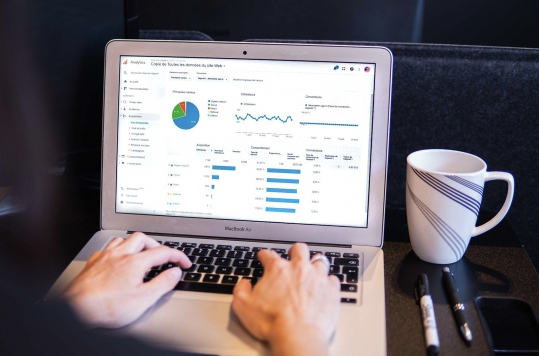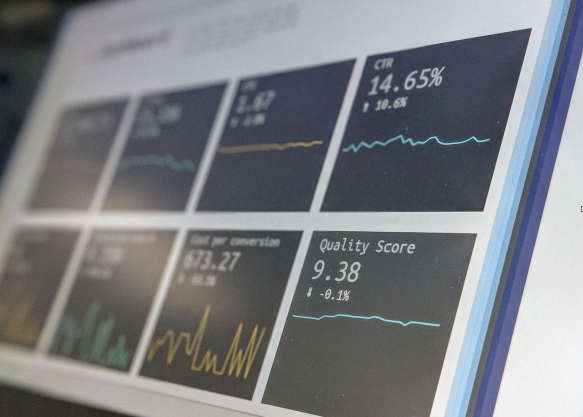
If you’re looking for the best ecommerce SEO tips, you’ve got a lot of competition. In fact, if you Google “ecommerce SEO” right now, over three million results come up. So how do you cut through the clutter? And why should you care? After all, isn’t ecommerce all about marketing? If your site is the biggest and most popular on the internet, doesn’t that mean more people will see what I have to offer and buy my products?
Unfortunately not. Most consumers are too overwhelmed by choices to spend time navigating around your website just because it is big. You need to make sure that YOUR customers can find YOUR products among the millions of other things on the internet. That requires a different type of marketing: Search Engine Optimization (SEO).
What is SEO?
Search engine optimization (SEO) is the process of improving your website so that it appears higher in search results. The ultimate goal of SEO KPIs is to get your site to rank #1 for major keywords. For example, if you are selling sneakers online, then your goal would be to have your site appear at the top of Google's organic search for “buy sneakers” or “where can I buy sneakers?”
What is SEO and why does it matter?

SEO stands for search engine optimization. It's a way to make your website more visible in search results and attract more visitors through the organic (or free) portion of the SERPs.
Organic traffic, like the kind Sirlinksalot helps businesses achieve, is the type of traffic that comes from search engines when someone types in a keyword or phrase, like “dog beds” or “guitar lessons”—you get the idea. This is important because people don't click on ads as often as they do organic results, so if you want to see sales coming in from your site, you'll want to focus on optimizing your content for organic searches first and foremost.
At its core, SEO is about creating useful content that solves problems for readers by addressing who they are (customer persona), why they're looking for information on this topic right now (keyword research), how we can help them get what they need faster than anyone else does it today (SEO strategy)
Important things to know
You're probably wondering how you can possibly be expected to keep up with the ever-changing nature of Google's algorithm. The truth is that you can't, at least not without some help. That's why we've written this guide: so the ecommerce SEO agency know what kind of things they need to worry about when it comes to ecommerce SEO and how they work together.
The first thing to understand about Google’s algorithm is that it’s a black box—in fact, it’s something like a moving target: constantly changing and impossible for anyone outside of Google itself to fully understand or explain. Google also refers to its algorithm as “a complex system which nobody really understands."
The next important thing? While there are certainly aspects of the way your website or product page will rank that are fixed by rules (like keyword density), most other factors are heavily influenced by what humans think about certain sites or pages—for example, if people are linking back from other websites with anchor text saying "this page was helpful," then those links will help boost your SERPs rankings!
What’s the difference between organic and paid search?
You may have heard the terms “organic search” and “paid search” before. The two are fundamentally different, but both can be used to help your business succeed in the ecommerce space.
Organic search refers to Google's results that appear at the top of a user's page without them having had to click on an ad or paid listing first. These are called organic results because they're based on keywords that users type into Google as well as their location, previous searches and more information about their browsing habits. Organic results make up what we commonly think of when we talk about "search engine optimization" (SEO).
Keywords
The words you use on your site will determine what people will see when they visit it; it all starts with good keyword research! To get started with SEO best practices, start by figuring out which keywords are relevant for your website—not just right now but also over time so as trends change throughout various industries and segments.
How can you optimize your site for the algorithm?
As a rule of thumb, you should make sure that the title, URL, and metadata are optimized for the search query.
- Use long tail keywords in your title tags. This will help your products show up in more relevant searches and improve click-through rates.
- Use keyword density (percentage of words on the page). You should aim for 2%-3% density to keep things natural-sounding and readable. Don't go overboard with it: if your document has 15k words but only 500 keywords, this may look suspiciously unnatural and you'll get penalized by Google's algorithm! The same goes for images: alt text should contain the most important keywords while keeping it short enough so that users can still read it comfortably without scrolling endlessly down below each image (and thus losing interest). It's also helpful if there's some sort of call to action within these descriptions—for example: "Buy now!" or "Get started today!"
The whole story about SEO optimization comes down to following trends, because this is a process that is constantly monitored and upgraded. If you can't do it yourself, it's best to hire a professional SEO agency in Sydney and achieve sales results.
Crawling
Crawling is the process of how a search engine like Google looks through your website to find out what's there.
When your site is crawled, it's automatically added to the index (i.e., the list of all indexed web pages).
Search engines crawl websites in order to:
- Find content on your site that isn't linked from anywhere else on the web yet;
- Update their information about you and your business based on what they find;
- Index new pages so that users can easily access them via search results; and finally,
- Track how often users visit certain parts of your site so they know which ones are popular and which ones aren't useful at all—a process called "user engagement."
Indexation
In ecommerce SEO, the concept of indexation is when your website content is in search engines like Google and Bing.
There are a few ways you can check if your site is indexed by these search engines:
- If you're using a WordPress blog, try searching for keywords on Google that relate to your niche. If any posts from your blog appear in the results, then this means that content from your site has been crawled by Googlebot and added to their index.
- You can also use the "site:" operator in Google Search Console to determine whether or not specific pages or categories have been indexed by Googlebot (for example: site:yoursite.com). This will allow you to see which pages have been inserted into their index so far!
Ranking
Ranking is the process of your website appearing in the search results. Ranking is a result of a number of factors, including:
- Backlinks - Backlinks are links to your website from other websites or pages. Backlinks are one of the most important factors in SEO because they tell Google that other people think your site is worth linking to.
- On-site SEO - On-site SEO focuses on making sure that you have done everything possible on your own site to make it rank higher in Google's search results. Things such as keyword optimization and title tags are examples of things that fall under this category.
Technical SEO

Technical SEO is the most technical part of SEO and requires some technical knowledge. The following are some tips for ensuring your site has a good technical structure:
- Use a content management system (CMS). This will make it easier to manage all parts of your site, including pages, images, products and product descriptions. Popular CMSs include WordPress and Drupal.
- Use a static site generator. Static sites are built using pre-generated HTML files instead of dynamically created HTML on the fly by a web server or CMS like WordPress or Drupal. This makes them faster because they don't rely on any other technology to load them; you can simply open up the file in your browser without having to load any additional scripts or libraries. If you're comfortable writing code yourself, this might be an option for you! Otherwise there are plenty of platforms that offer free options if you don't want to pay for anything too fancy yet still want something better than plain old HTML5 pages without any formatting at all (which would be ugly).
- Use fast servers with CDNs (content delivery networks).
Site speed
This is how long it takes for your site to load in a user's browser. Google has said that slow sites don't rank as well as fast ones, because users will leave if the page doesn't load within three seconds. Once again, this means you need to make sure your pages load quickly or else you're missing out on potential customers who could be buying from another store instead!
Develop a link building strategy.
Link building is the most important part of your SEO strategy. Link building is the process of earning links to your website from other websites. This can be done by submitting articles for publication or guest posting, or by participating in relevant online communities (like Reddit) in order to earn a link back to your site. Utilizing services like World Wide Backlinks can help you expand your reach and improve your site's SEO by generating quality backlinks from authoritative websites.
Link building is a slow, long-term process that requires patience and consistency. It's not something you can do overnight—but if you're willing to put in the time and effort now, it will pay off dividends down the road when it comes time for Google to rank your site higher than competitors'.


Login and write down your comment.
Login my OpenCart Account